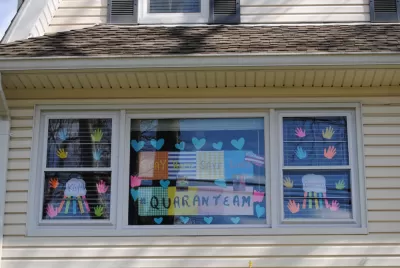More and more homeowners are falling behind on mortgage payments as the pandemic lingers, according to recent market data.

"Skipped mortgage payments across California are jumping to levels not seen since the mortgage mess surrounding the Great Recession," according to an article by Jonathan Lanser.
Statewide, "3.8% of home loans were in deep trouble compared with 0.6% a year earlier," reports Lanser, citing data of "seriously delinquent" home loans in August released recently by CoreLogic.
Home loans are delinquent in disparate geographic regions with fundamentally distinct market dynamics: Riverside and San Bernardino counties, Los Angeles and Orange counties, the San Francisco metropolitan area, and the San Jose metropolitan area. Lanser also notes that CoreLogic has identified the same trend around the country: "The nation’s rate was 4.3% — up from 1.3% in August 2019 and the highest rate of 'serious”' trouble since February 2014."
Still, experts cited in the article say the current risk of foreclosure is still well short of the foreclosures the state experience during the real estate crash of the Great Recession. "By CoreLogic’s count, Inland Empire [during the Great Recession] delinquencies topped 16% and neared 10% in Los Angeles-Orange County. In the Bay Area, late payments approached 7%," explains Lanser.
The likelihood that the current number of delinquencies could eventually rise to the levels of foreclosure experienced during the Great Recession is offset by several factors, like the actions of the Federal Reserve, regulation implemented since the last real estate meltdown, and a much larger reserve of equity, the last is expected to continue to grow over the course of the next year as eligible homebuyers look to upgrade with and take advantage of low interest rates.
FULL STORY: Seriously late California mortgages jump 6-fold

Alabama: Trump Terminates Settlements for Black Communities Harmed By Raw Sewage
Trump deemed the landmark civil rights agreement “illegal DEI and environmental justice policy.”

Study: Maui’s Plan to Convert Vacation Rentals to Long-Term Housing Could Cause Nearly $1 Billion Economic Loss
The plan would reduce visitor accommodation by 25% resulting in 1,900 jobs lost.

Why Should We Subsidize Public Transportation?
Many public transit agencies face financial stress due to rising costs, declining fare revenue, and declining subsidies. Transit advocates must provide a strong business case for increasing public transit funding.

Wind Energy on the Rise Despite Federal Policy Reversal
The Trump administration is revoking federal support for renewable energy, but demand for new projects continues unabated.

Passengers Flock to Caltrain After Electrification
The new electric trains are running faster and more reliably, leading to strong ridership growth on the Bay Area rail system.

Texas Churches Rally Behind ‘Yes in God’s Back Yard’ Legislation
Religious leaders want the state to reduce zoning regulations to streamline leasing church-owned land to housing developers.
Urban Design for Planners 1: Software Tools
This six-course series explores essential urban design concepts using open source software and equips planners with the tools they need to participate fully in the urban design process.
Planning for Universal Design
Learn the tools for implementing Universal Design in planning regulations.
Caltrans
Smith Gee Studio
Institute for Housing and Urban Development Studies (IHS)
City of Grandview
Harvard GSD Executive Education
Toledo-Lucas County Plan Commissions
Salt Lake City
NYU Wagner Graduate School of Public Service




























